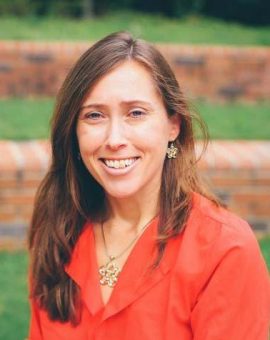Having worked in the book industry my entire career, I decided that 2020 would be a great time to not only broaden my writing repertoire but also add another revenue stream by writing for magazines. So, in January, I pitched article ideas to a local magazine publisher. I felt confident about the topics and assumed it would be easy to obtain the requisite interviews and source material.
Shortly after being assigned my first article, however, I learned several important lessons about writing for this genre.

Lesson #1: Never assume and always confirm.
I scheduled a meeting with the founder of a nonprofit I was to write about. On the dhe day of the interview, I arrived ten minutes early to discover the front door locked. Having noticed several cars in the rear parking lot, I assumed the founder was inside and had merely forgotten to unlock the front door.
I reached for my cell phone and dialed her number. She informed me that the organization had experienced an emergency situation two days prior and that she and the volunteers had been working almost around the clock ever since. She was at home trying to catch up on some sleep and requested that we meet the following week.
Fortunately, that interview occurred without a hitch (I called ahead the next time) and I managed to meet my deadline.
Lesson #2: Practice patience.
Six weeks later, when I spied the coveted issue on the grocery store stand, I grabbed a few copies, dumped them in my bag and drove home. At home I dove into the magazine and flipped through its pages for my article.
After scouring the magazine from cover to cover three times, I emailed the publisher to politely inquire about my piece. It was then that I learned it had been pushed to the next issue. . . 12 weeks away.

However, he assigned me another of my pitches in the meantime. As I began work on my second piece, I reached out to the one source I expected to be a slam dunk. That’s when I learned another important lesson.
Lesson #3: Not all sources want to be interviewed.
That’s right. My perfect source refused to respond to my carefully spaced yet repeated attempts to secure a brief interview. Email, phone calls…even asking a friend of mine who is a neighbor to mention that I’d like to do an interview for a local publication resulted in absolute silence.
Who doesn’t want free publicity for their business? I wondered. But it didn’t matter; the deadline was at hand and I was forced to explain the situation to the publisher and request an extension.
Lesson #4: Think outside the box.

Thankfully, he was understanding and gave me another two weeks. I became rather creative in discovering sources; not just asking friends who I should talk to, but also reaching out to organizations and local government officials. The effort led me down many rabbit holes but ultimately resulted in a well-rounded article with interesting tidbits I probably wouldn’t have discovered if my initial source had panned out. To top it off, the publisher thanked me for tracking down the story.
Conclusion
Writing anything – whether a book, a blog or a magazine article – is a continual learning process. Don’t give up when you encounter challenges or setbacks. In fact, I still rely on the first writing lesson I learned a long time ago from my favorite English professor: “Push yourself.” I’ve discovered it will make you a better writer.
Bio: Dalene Bickel is an author, book coach and founder of both Lasting Legacies (a life story/memoir writing resource) and the Ink & Impact Facebook group for nonfiction and historical fiction writers.
Leave a Reply